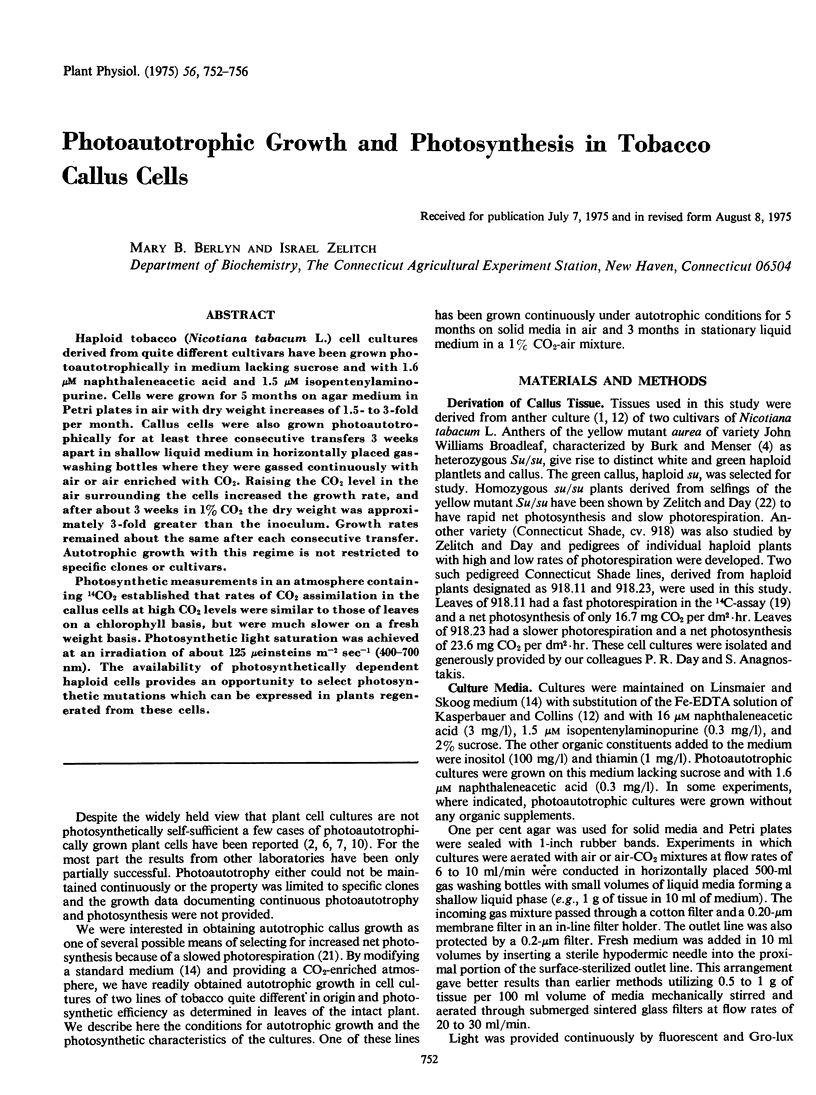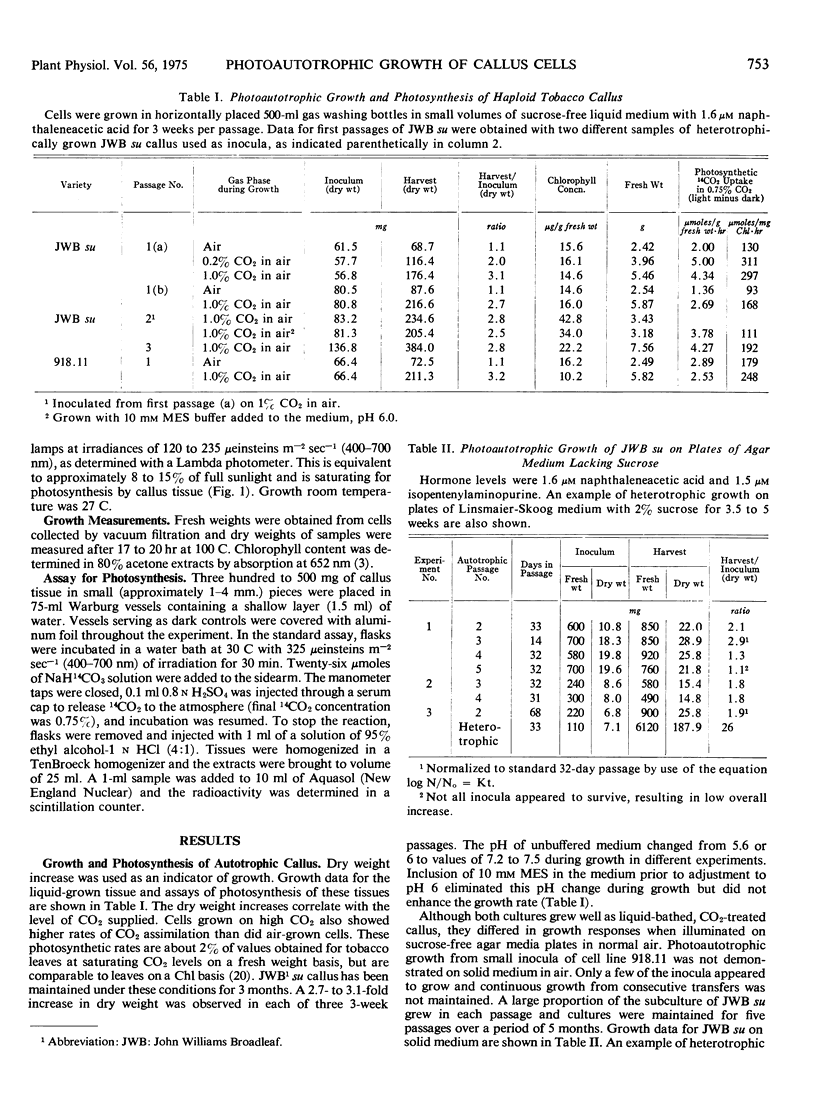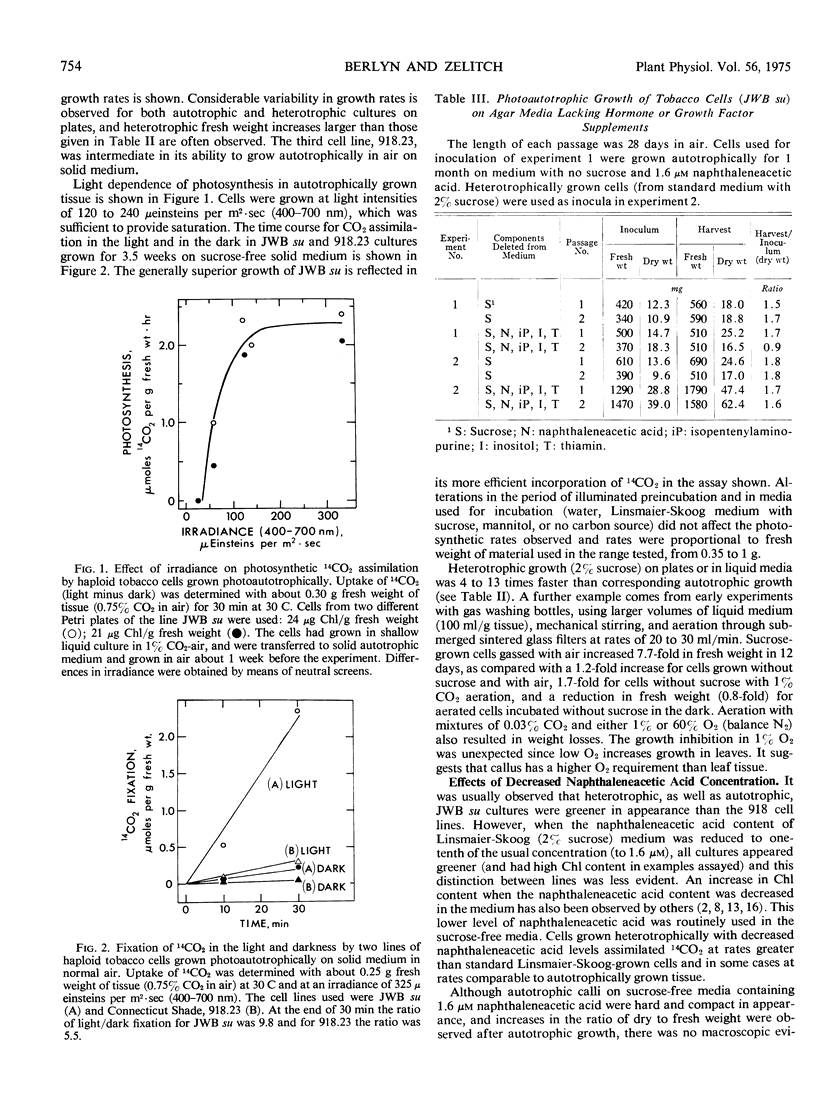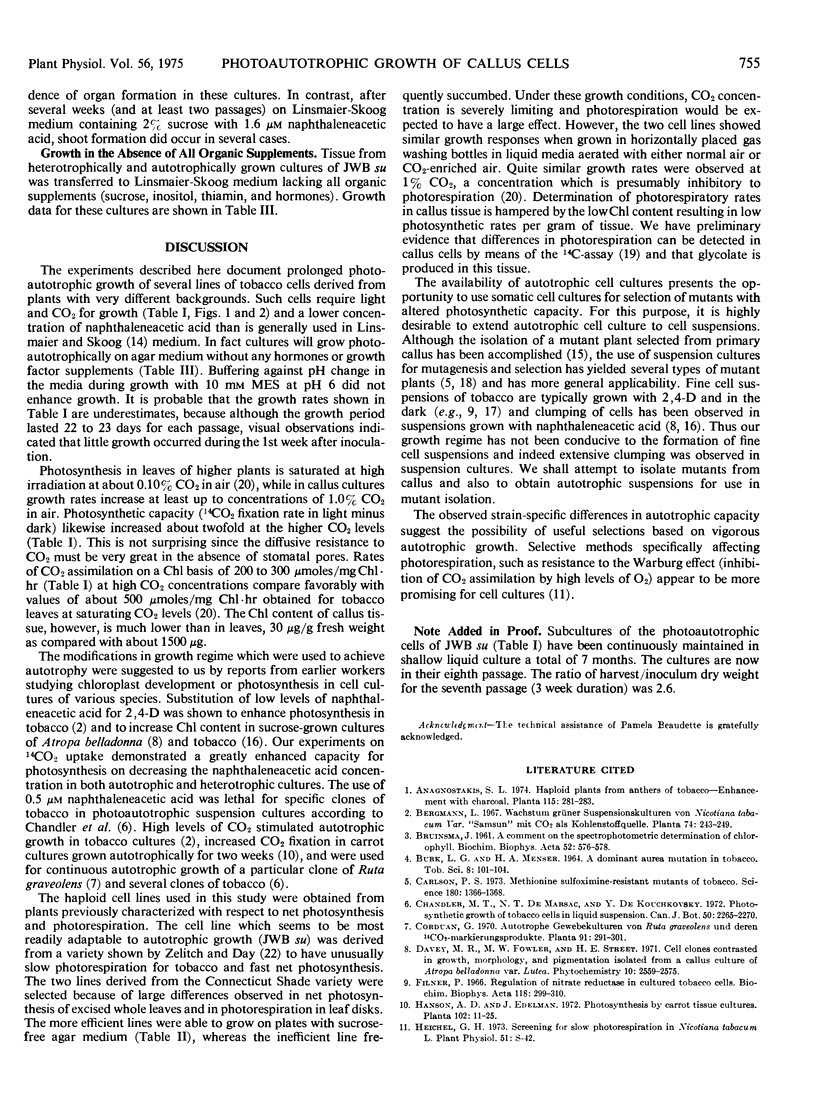Abstract
Haploid tobacco (Nicotiana tabacum L.) cell cultures derived from quite different cultivars have been grown photoautotrophically in medium lacking sucrose and with 1.6 μm naphthaleneacetic acid and 1.5 μm isopentenylaminopurine. Cells were grown for 5 months on agar medium in Petri plates in air with dry weight increases of 1.5- to 3-fold per month. Callus cells were also grown photoautotrophically for at least three consecutive transfers 3 weeks apart in shallow liquid medium in horizontally placed gas-washing bottles where they were gassed continuously with air or air enriched with CO2. Raising the CO2 level in the air surrounding the cells increased the growth rate, and after about 3 weeks in 1% CO2 the dry weight was approximately 3-fold greater than the inoculum. Growth rates remained about the same after each consecutive transfer. Autotrophic growth with this regime is not restricted to specific clones or cultivars.
Photosynthetic measurements in an atmosphere containing 14CO2 established that rates of CO2 assimilation in the callus cells at high CO2 levels were similar to those of leaves on a chlorophyll basis, but were much slower on a fresh weight basis. Photosynthetic light saturation was achieved at an irradiation of about 125 μeinsteins m−2 sec−1 (400-700nm). The availability of photosynthetically dependent haploid cells provides an opportunity to select photosynthetic mutations which can be expressed in plants regenerated from these cells.
Full text
PDF




Selected References
These references are in PubMed. This may not be the complete list of references from this article.
- BRUINSMA J. A comment on the spectrophotometric determination of chlorophyll. Biochim Biophys Acta. 1961 Sep 30;52:576–578. doi: 10.1016/0006-3002(61)90418-8. [DOI] [PubMed] [Google Scholar]
- Carlson P. S. Methionine sulfoximine--resistant mutants of tobacco. Science. 1973 Jun 29;180(4093):1366–1368. doi: 10.1126/science.180.4093.1366. [DOI] [PubMed] [Google Scholar]
- Filner P. Regulation of nitrate reductase in cultured tobacco cells. Biochim Biophys Acta. 1966 May 5;118(2):299–310. doi: 10.1016/s0926-6593(66)80038-3. [DOI] [PubMed] [Google Scholar]
- Maliga P., Sz-Breznovits A., Márton L. Streptomycin-resistant plants from callus culture of haploid tobacco. Nat New Biol. 1973 Jul 4;244(131):29–30. doi: 10.1038/newbio244029a0. [DOI] [PubMed] [Google Scholar]
- Zelitch I., Day P. R. Variation in photorespiration. The effect of genetic differences in photorespiration on net photosynthesis in tobacco. Plant Physiol. 1968 Nov;43(11):1838–1844. doi: 10.1104/pp.43.11.1838. [DOI] [PMC free article] [PubMed] [Google Scholar]
- Zelitch I. Improving the efficiency of photosynthesis. Science. 1975 May 9;188(4188):626–633. doi: 10.1126/science.188.4188.626. [DOI] [PubMed] [Google Scholar]
- Zelitch I. Investigation on photorespiration with a sensitive C-assay. Plant Physiol. 1968 Nov;43(11):1829–1837. doi: 10.1104/pp.43.11.1829. [DOI] [PMC free article] [PubMed] [Google Scholar]


